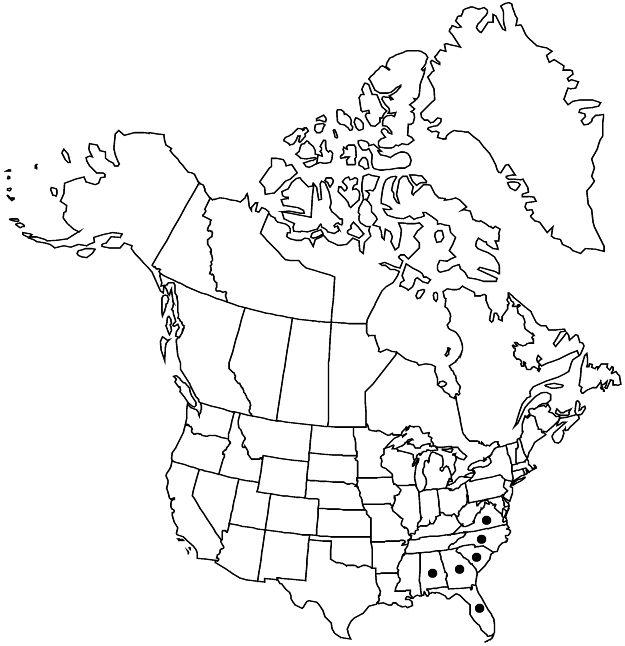Paronychia baldwinii
Repert. Bot. Syst. 1: 262. 1842.
Plants annual, biennial, or perennial, often matted; taproot slender. Stems prostrate to erect, branched, 5–70 cm, mostly retrorsely to spreading-pubescent on 1 side or throughout. Leaves: stipules lanceolate, 2–6 mm, apex acuminate, entire; blade oblong to elliptic or oblanceolate, 3–25 × 1–6 mm, herbaceous, apex acute and briefly cuspidate, glabrous. Cymes terminal, 20–40+-flowered, diffuse, lax, repeatedly forked or dichotomous. Flowers 5-merous, ± short-cylindric, with enlarged hypanthium and calyx cylindric, 1–1.7 mm, glabrous to pubescent with short hairs, often minutely ciliate, sometimes glaucous; sepals greenish or greenish white to brownish, veins absent, ovate to oblong, 0.8–1.3 mm, herbaceous, margins white, 0.05–0.1 mm wide, scarious to papery, apex terminated by minute cusp, hood narrowly rounded, cusp light green to whitish, straight, short-conic, 0.1–0.15 mm, minutely scabrous; staminodes subulate, 0.2–0.3 mm; style 1, cleft in distal 4/5+, 0.2–0.4 mm. Utricles ellipsoid, 1–1.3 mm, papillate distally.
Phenology: Flowering summer–fall.
Habitat: Dunes, woodlands, fields, clearings, roadsides, riverbanks, hummocks, waste places
Elevation: 0-200 m
Distribution

Ala., Fla., Ga., N.C., S.C., Va.
Discussion
Chaudhri used duration and pubescence to recognize two subspecies of Paronychia baldwinii, characters that L. H. Shinners (1962c) found to vary independently in this species.
Selected References
None.